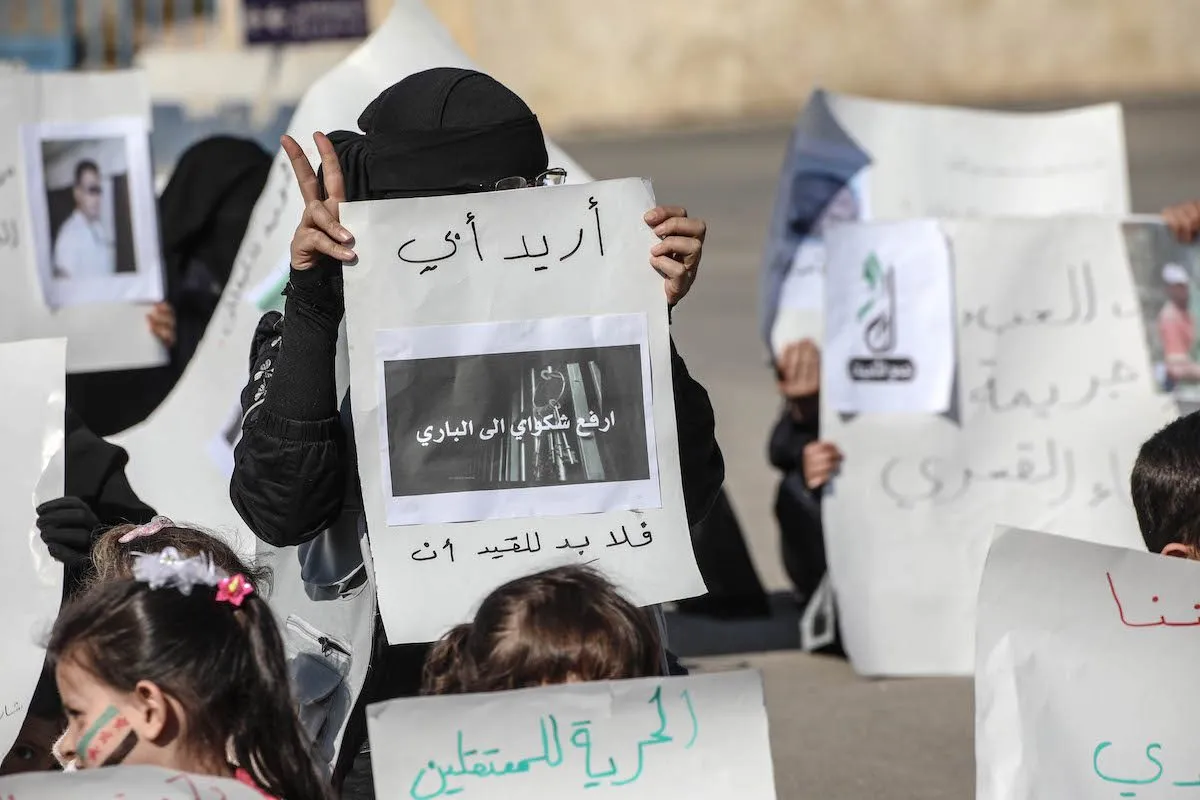Swiss federal prosecutors have moved forward with a trial referral for Rifaat al-Assad, the former Vice President of Syria and uncle to the current president, on allegations of war crimes and crimes against humanity dating back more than four decades. Meanwhile, reports highlight the dire humanitarian crisis in Syria, where approximately 70% of the population is in urgent need of humanitarian aid after enduring 13 years of armed conflict.
Switzerland to try Syria’s Rifaat al-Assad for war crimes
Swiss federal prosecutors have referred Syria’s ex-Vice President Rifaat al-Assad, the uncle of the country’s current president, for trial on charges of war crimes and crimes against humanity allegedly committed more than four decades ago, Al-Jazeera reported.
The attorney general’s office said on Tuesday the 86-year-old was accused of the crimes in February 1982 while serving as commander of the defence brigades that carried out an attack in the Syrian city of Hama during a conflict between the military and the opposition. Security forces killed thousands to crush a Muslim Brotherhood uprising in the central city that year.
“The accused is charged with ordering homicides, acts of torture, cruel treatments and illegal detentions … in his capacity as commander of the defence brigades … and commander of operations in Hama,” the office said in a statement.
It said the alleged “war crimes and crimes against humanity” he was being charged with had taken place “within the context of the armed conflict and the widespread and systematic attack launched against the population of the city of Hama”.
According to the indictment, the conflict is estimated to have caused between 3,000 and 60,000 deaths in Hama, most of them civilians.
Prosecutors will present their case to the federal criminal court in the southern city of Bellinzona, the attorney general’s office said, without specifying a date.
After he was convicted in France of illegal use of Syrian state funds and sentenced to four years in prison, his nephew, Syrian President Bashar al-Assad, allowed him back into war-torn Syria, ending his more than 30 years of exile in France.
The complaint against him was first filed in 2013 by TRIAL International, a rights group that works with victims and pushes Switzerland to prosecute alleged international criminals.
Syria: An endless humanitarian crisis
Hi.org published a report on the deterioration of the humanitarian crises in Syria.
The humanitarian situation in Syria after 13 years of armed conflict is dire, with Country Director Myriam Abord-Hugon providing a grim overview. Despite a reduction in large-scale violence, localized hostilities and regular airstrikes continue, especially in the northern regions. The impact of the war is profound:
Humanitarian Needs: Around 70% of Syria’s population requires humanitarian assistance. Nearly 7 million out of the country’s 22 million people are internally displaced, living in camps under appalling conditions. Official U.N. records indicate over 300,000 Syrians have been killed since the conflict began in 2011, with the actual death toll likely much higher.
Infrastructure Destruction: Significant destruction across Syria has left homes, hospitals, and schools in ruins. Cities like Raqqa, East Aleppo, Deraa, Homs, and Eastern Ghouta have faced severe devastation. Raqqa, for example, saw 80% of its infrastructure destroyed in 2017, and much of it remains unrepaired. Only 60% of Syrian hospitals are operational.
Impact on the Population: The conflict has led to a widespread increase in disabilities, with approximately 28% of the population affected due to injuries and lack of medical care. Economic hardship, energy shortages, and a general impoverishment of the population are widespread. Disease outbreaks and malnutrition are major causes of mortality, compounded by the COVID-19 pandemic and the 2023 North Syria earthquake, which added to the toll of suffering and disabilities.
Contamination from Explosives: Extensive use of explosive weapons has heavily contaminated many areas, posing a significant risk to civilians. About 11.5 million people live in zones contaminated by explosive ordnance, with an average of 76 explosive accidents recorded daily in 2022. The challenge of clearing Syria of these dangers is immense and expected to extend over generations.
HI’s Response: Handicap International (HI) is managing one of its largest humanitarian missions in Syria, with 300 staff members implementing various programs, including explosives clearance and economic support to families. Through partnerships with local organizations and health centers, HI provides rehabilitation services to older people, those with disabilities, and individuals injured in the conflict. Over a decade, HI has assisted more than 2 million people.
The sustained conflict and its aftermath highlight the urgent need for continued international support and a focused effort on rehabilitation, reconstruction, and demining to mitigate the humanitarian crisis in Syria.
Turkey’s airstrikes on civilian targets in Syria may amount to war crimes: UN commission
The UN’s Commission of Inquiry on Syria has released a statement that said Turkey’s airstrikes on civilian targets in northeast Syria could amount to war crimes, the Stockholm Center for Freedom reported, TurkishMinute.com reported.
“Turkish aerial attacks on power plants deprived nearly one million people of water and electricity for weeks, in violation of international humanitarian law,” the commission said on Monday. “Civilians were also killed in targeted aerial attacks fitting a pattern of Turkish drone strikes. Such attacks may amount to war crimes.”
The statement said Syria was in dire need of a ceasefire amid the worsening humanitarian crisis.
Rights groups, such as Human Rights Watch (HRW), have also been criticizing Turkey’s airstrikes in the Kurdish-held regions of the war-torn country.
Last month HRW released a report holding Turkey responsible for human rights abuses and violations of land and property rights in swaths of northern Syria it controls along with its proxies.
In addition Turkey was also repeatedly accused of disrupting water supply to Kurdish-majority areas. In late 2022 HRW said Turkey’s actions exacerbated an acute water crisis and contributed to the spread of a deadly cholera outbreak.
Since 2016 Turkey has carried out successive ground operations to expel the Kurdish-led Syrian Democratic Forces (SDF) from Syria’s north, with its proxies now controlling two large border strips.


